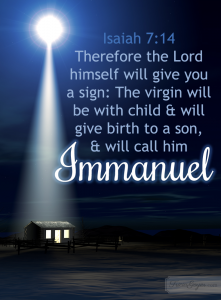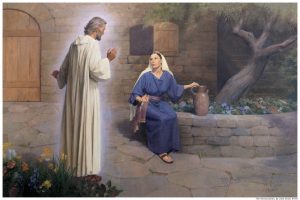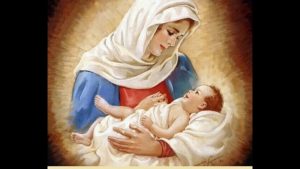
Shownotes
Wisdom-Trek / Creating a Legacy
Welcome to Day 936 of our Wisdom-Trek, and thank you for joining me.
I am Guthrie Chamberlain, Your Guide to Wisdom
Immanuel’s Mother: Virgin or Not? – Wisdom Wednesday

Thank you for joining us for our five days per week wisdom and legacy building podcast. We are broadcasting from our studio at The Big House in Marietta, Ohio. Today is Day 936 of our trek, and it is Wisdom Wednesday.
Creating a Biblical Worldview is important to have a proper perspective on today’s current events. To establish a Biblical Worldview, it is required that you also have a proper understanding of God’s Word. Especially in our western cultures, we do not fully understand the Scriptures from the mindset and culture of the authors.
In order to help us all have a better understanding of some of the more obscure passages in God’s word, we are investing Wisdom Wednesday reviewing a series of essays from one of today’s most prominent Hebrew Scholars Dr. Micheal S. Heiser. He has compiled these essays into a book titled I Dare You Not to Bore Me with the Bible.
Words are important. As part of creating a solid Biblical worldview, it is important to study some key and maybe controversial words within the Bible. While the human authors of God’s word had a specific meaning in mind when they chose certain words, translating them can cause us to have questions. Especially those who want to try and dispute the Bible. So today’s essay explores…
Immanuel’s Mother: Virgin or Not?

The prophecy of Isaiah [7:14] is among the most well-known passages in the book of Isaiah. It’s also one of the most controversial, for many reasons.
All right then, the Lord himself will give you the sign. Look! The virgin (almah) will conceive a child! She will give birth to a son and will call him Immanuel (which means “God is with us”).
It’s difficult to get through the Christmas or Easter season without seeing one of the major news periodicals or educational television networks cast doubt about the meaning of almah in Isaiah [7:14], which is usually translated as virgin.
A favorite argument is that the Hebrew word almah cannot mean “virgin” but instead refers to a young woman of marriageable age, without respect to prior sexual activity. The more precise word for “virgin” is betulah a word not used in Isaiah [7:14]. The New Testament author Matthew, we are so often told, mistakenly assumed the term meant “virgin.” The argument is that his ignorance of the original Hebrew word led to the doctrine of the virgin birth of Jesus. But are these assertions correct?
It’s true that betulah refers to someone who has been sexually inactive, but does that mean almah never means virgin (Leviticus 21:3; Judges 21:12; Deuteronomy 22:23&28; Exodus 22:15)? Outside of Isaiah 7:14, the word almah occurs only six times in the Old Testament. In all but one of those occurrences, the context provides no clue as to the sexual status of the young woman or women (Genesis 24:43; Exodus 2:8; Psalms 68:25; Song of Solomon 1:3&6:8: Proverbs 30:10). Virginity is suggested, however, in Song of Solomon 6:8 almah occurs in the plural alamot,“Even among sixty queens and eighty concubines and countless young women.”
The distinction between queens, concubines, and alamot is important. A queen was a royal wife, which obviously entails a sexual relationship with the king. A concubine was a sexual partner who held certain privileges, but not to the level of a wife. This would suggest that the third group, the alamot, had no sexual relationship with the king. An almah in this text is a candidate to become a concubine or a wife.
This is precisely what we see in the book of Esther. Esther 2:3 reads, “Let the king appoint agents in each province to bring these beautiful young women into the royal harem at the fortress of Susa. Hegai, the king’s eunuch in charge of the harem, will see that they are all given beauty treatments.”
The story continues in Esther 2:8, “As a result of the king’s decree, Esther, along with many other young women, was brought to the king’s harem at the fortress of Susa and placed in Hegai’s care.”
Further on we read that Esther was held in waiting for 12 months with “young virgins” (betulah) under the supervision of Hegai while the king sought a new queen. The use of the Hebrew words “na ar” and “betulah” in this passage indicates that a “young woman (na ar) could certainly be a “virgin” (betulah).
Esther was eventually taken from the “young virgins” under Hegai to the king for an evening liaison. Afterward, she was assigned to a “second harem” supervised by Shaashgaz, who “was in charge of the concubines.” Esther [2:14] indicates that Esther was no longer a virgin, but now a concubine.
That Esther and the king had a sexual relationship during the night is clear from Esther 2:14, “That evening she was taken to the king’s private rooms, and the next morning she was brought to the second harem, where the king’s wives lived. There she would be under the care of Shaashgaz, the king’s eunuch in charge of the concubines. She would never go to the king again unless he had especially enjoyed her and requested her by name.”

To “go into a man or woman” is a common Old Testament euphemism for sexual intercourse (Genesis 16:2; [29:21]; 38:8; Deuteronomy [21:13]; 25:5; Judges 15:1).
The Esther story describes the king’s harem as divided into three groups: queen, concubines, and young virgins. The last of those groups is described as na’arah betulah, “young virgins.” In parallel, Song of Songs 6:8 which we read previously has the same threefold division, but uses almah (plural: alamot) to describe the third group or “virgins.” This indicates that na ar, betulah, and alamot can all three be descriptions of “virgins.”
Nonetheless, since Esther is never called an almah, could almah still be excluded from the Old Testament vocabulary for “virgin”? For the assertion that “almah” cannot mean virgin to be correct, na ar and betulah must never overlap with almah. But they do. In Genesis 24, Rebekah is referred to with all three terms (na ar in [24:14], betulah in [24:16], and almah in [24:43]), indicating that the terms could certainly be construed as synonymous.
But do we even need the word study? In an ancient patriarchal culture, a “woman of marriageable age,” like Mary, was a female who had at least reached puberty and so was capable of bearing children. Daughters in such a culture were under close supervision and restraint. Even in today’s sex-saturated culture, a significant number of girls in their teen years are virgins. How much more would this have been true of a young woman in a patriarchal culture?
Matthew was raised in this culture, and with the book of Esther, so it should not surprise us that he saw no incongruity in understanding almah to mean “virgin.” This would certainly be the logical conclusion in the minds and culture in which the Bible was written. Knowing this type of information can assist us in building on our Biblical worldview.
That will conclude our essay for this week. Next Wisdom Wednesday we will continue with the Old Testament as we look at Dr. Heiser’s next essay titled “Standing in the Council.” I believe you will find this another interesting topic to consider as we build our Biblical worldview.
Tomorrow we will continue with our 3-minute humor nugget that will provide you with a bit of cheer and help you to lighten up and live a rich and satisfying life. So encourage your friends and family to join us and then come along with us tomorrow for another day of our Wisdom-Trek, Creating a Legacy.

If you would like to listen to any of our past 935 treks or read the Wisdom Journal, they are available at Wisdom-Trek.com. I encourage you to subscribe to Apple Podcast or Google Play so that each day’s trek will be downloaded automatically.
Thank you so much for allowing me to be your guide, mentor, and most of all your friend as I serve you through the Wisdom-Trek podcast and journal.
As we take this trek together, let us always:
- Live Abundantly (Fully)
- Love Unconditionally
- Listen Intentionally
- Learn Continuously
- Lend to others Generously
- Lead with Integrity
- Leave a Living Legacy Each Day
I am Guthrie Chamberlain reminding you to Keep Moving Forward, Enjoy Your Journey, and Create a Great Day Everyday! See you tomorrow!